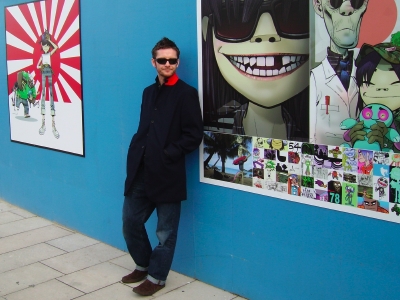What is Creative Commons?
Creative Commons is a license program that provides “free licenses that let creators give permission in advance for certain use of their material.” [1] Which means, under one of these licenses, all work that is produced under it is automatically protected by copyright. It also means that (depending on which particular type of license chosen) creators can not only share their work, but allow for it to be copied, modified or remixed. They were created by a non-profit organization, and promote sharing creative works across cultural, geographical and generation borders. There are four different elements to the licenses. Attribution (BY) means you must credit the creator, title and license. Noncommercial (NC) means any use of the work must be for noncommercial purposes only, while No Derivative Works (ND) means only verbatim copies of the works can be used. Lastly, Share Alike (SA) means any new work using the material must be made available under the same terms. These four elements mixed together to make six licenses available:
i. Attribution (BY) Commercial and Noncommercial: Can copy, adapt or modify, distribute, license to others
ii. Attribution-Noncommercial (BY-NC) Noncommercial only: Can copy, adapt or modify, distribute and license
iii. Attribution-Share Alike (BY-SA) Commercial and Noncommercial: Can copy, adapt or modify, distribute and license on the same term as the original
iv. Attribution-No Derivative Works (BY-ND) Commercial and Noncommercial: Can copy, distribute verbatim copies only and license
v. Attribution-Noncommercial-Share Alike (BY-NC-SA) Noncommercial only: Can copy, adapt or modify, distribute and license on the same terms as the original
vi. Attribution-Noncommercial-Non Derivative Works (BY-NC-ND) Noncommercial only: Can copy, distribute verbatim copies only and license to others
*As shown at http://creativecommons.org.au/
What are the Benefits of Creative Commons?
Creative Commons licenses are global designed and recognized; they are enforced with the same tactics and effects in any place at any time around the world. This is a major benefit with using the internet to share creative works, and allows legal sharing all across the world wide web. Every license of Creative Commons enforces authorship; users must credit the original author of the work. They are also fairly easy to understand, and there are sites for every country using the Creative Commons initiative that explains them in detail, leaving less room for accidental copyright infringement. Most importantly, Creative Commons licenses are free, and if breached, standard copyright laws apply. The popularity and need for Creative Commons is becoming apparent, with mainstream search engines like Yahoo and Google allowing image searches specifically for content protected by a Creative Commons license. Popular photo sharing site Flickr also has a Creative Commons license generator. This proves the need for free copyright licensing on the internet is becoming greatly needed, and more wide spread. The most important benefit of this licensing however, is that it is a free and completely legal way to share creative works, still under the protection of copyright.
What are some problems with Creative Commons licensing?
Even though Creative Commons provides a solution the the issue of copyright on the internet, it is also a failure. There are still many issues with the licenses, which are constantly being looked over and discussed by creators and critics of Creative Commons. A large issue for many people is that the licenses are irrevocable; once work is under a Creative Commons license, it can not be changed or revoked. This issue paves way for many another problems with the licenses. For example, even if the works peak the interests of professionals (such as publishers or record companies), it is unlikely a company would invest in the works as they are already available for free. This means the creator of the works waive all ability to collect royalties, and given that the Creative Commons licenses are irrevocable, can never make money from them. This means for many people that the Creative Commons licenses are financially impractical, and are only suited to creators who can afford to share their works for free, or people who are not planning to receive any income from their creative works. There are also other problems with the program, like the authentication of applying for a Creative Commons license, lack of support for rights enforcement, moral rights protection for performers within the works and the issue of co-creators. As yet in the Australian Creative Commons format, their is no moral liability for performers of or in the creative works protected by the licenses, and can not receive profits nor recognition for their part.

In conclusion, Creative Commons licensing is a step forward in dealing with copyright and authorship on the internet; though there are still many glitches that need to be addressed within the configuration. It is successful in the promotion of sharing knowledge over a wide axis, including cultures, age, and location. Even though no profits are received from the works, it allows creators to get across to audiences what can be done with their work, and in turn receive recognition they deserve. In the age of piracy, any attempt in legal and accurate internet copyright is significant. Creativity is the lifeblood of many cultures, and the internet is one of the easiest and broadest audiences to share it with. While there is much room for improvement, Creative Commons still helps do this legally, safely and efficiently.



